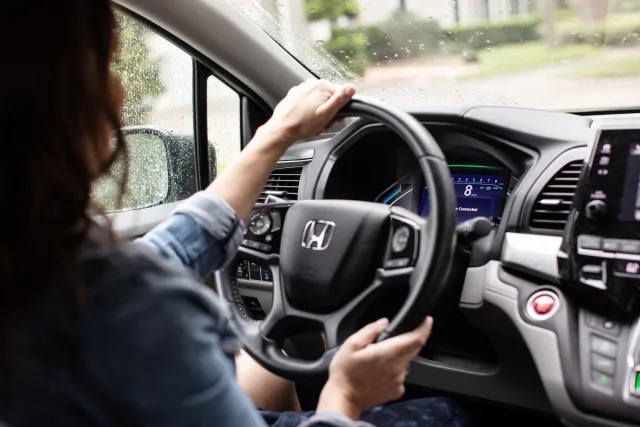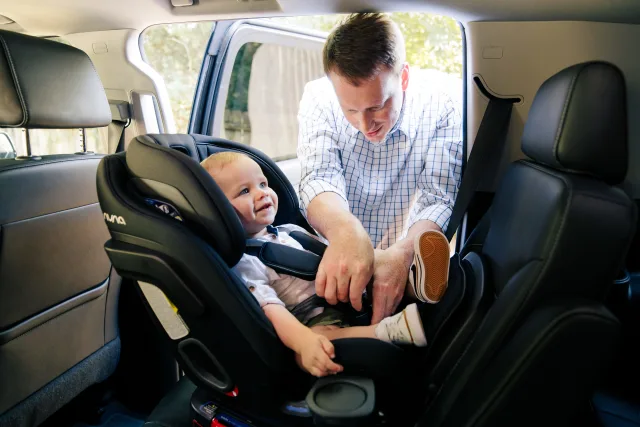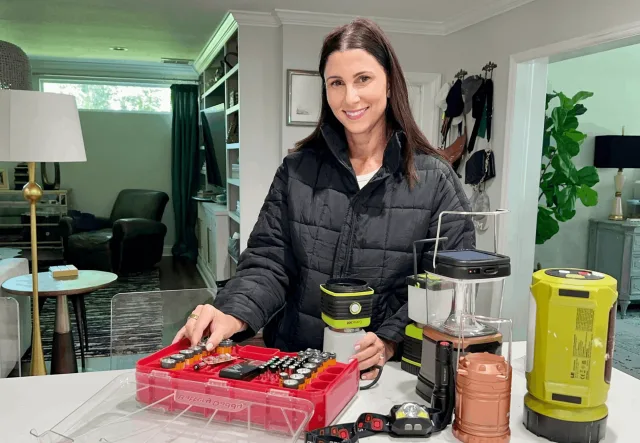As a parent, the safety of your child is your top priority. That’s why it’s essential to be aware of car seat and vehicle recalls and to understand how to respond if a product you own is affected. In this post, we’ll cover everything you need to know about recalls, including how to register your car seat, the difference between voluntary and mandatory recalls, and what remedies are available.
Car Seat Registration with the Manufacturer
Parents often overlook the importance of registering their child’s car seat with the manufacturer. This simple act is vital because it ensures you’ll be directly notified if a recall is issued for the product. Manufacturers are required to notify customers about recalls. But if they don’t have your contact information, you may miss essential safety information. Car seat registration guarantees that you will receive timely updates about any recalls or safety concerns.
All car seats come with a registration card in the box, along with your instruction manual. If you have discarded that, you can still register your seat. Find a rectangular label on your seat that contains the model number and date of manufacture. Then head to the car seat manufacturer’s website. And generally, at the bottom of the page, you will find the link to register your seat.

For more information on registering your car seat, check out our blog post How to Register Your Car Seat.
Voluntary vs. Mandatory Vehicle and Car Seat Recalls
Recalls are categorized into two types: voluntary and mandatory.
Voluntary Recalls
Voluntary recalls occur when a manufacturer identifies a potential safety issue with a product before any mandate from regulatory agencies like the National Highway Traffic Safety Administration (NHTSA). In such cases, the manufacturer takes proactive steps to inform customers and rectify the issue. If your car seat or vehicle is part of a voluntary recall, it’s crucial to take immediate action as outlined by the manufacturer. Voluntary recalls shouldn’t be taken lightly; they’re initiated to prevent potential harm, even if no incidents have been reported yet.
Mandatory Recalls
Mandatory recalls are issued when a safety issue is identified that requires immediate action. Often following an investigation by regulatory bodies like the National Highway Traffic Safety Administration (NHTSA). In these instances, the manufacturer is legally obligated to inform consumers of the defect and provide a remedy.
It’s critical to respond promptly to mandatory recalls to ensure your safety. If your car seat or vehicle is subject to such a recall, you’ll usually receive a notification by mail if you’ve registered the product. The notification will also include detailed instructions on how to address the issue. Failing to comply could put you at risk, so it’s essential to take these recalls seriously and act immediately.
If you have a car seat that does need to be replaced, watch this video to see how to properly dispose of it.
What Happens During a Recall?
Car Seat Recalls
Parents often overlook the importance of registering their child’s car seat with the manufacturer. Doing so is crucial, as it ensures you’ll be alerted immediately if a product recall occurs. While manufacturers are obligated to inform consumers about recalls, they can’t reach you if they don’t have your contact details.
Registering your car seat ensures you’ll get prompt notifications about any safety issues or recalls. Each car seat comes with a registration card in its packaging. If you’ve thrown this away, you can still register the product. Look for a rectangular sticker on the seat that includes the model number and manufacturing date. Then, visit the manufacturer’s website, where you’ll typically find a registration link at the bottom of the homepage. You can also go to the federal government site, National Traffic and Safety Administration, to check for recalls.
Vehicle Recalls
In the event of a vehicle recall, manufacturers are legally required to notify affected customers promptly. This notification is usually done through direct mail, using the contact information provided at the time of purchase or vehicle’s registration. In many cases, manufacturers also post recall notices on their official websites. And may use email or social media to disseminate the information further. They are obligated to issue these notifications as soon as they are aware that their product poses a safety risk or fails to meet federal regulations and standards.
Remedies for recalls can vary widely depending on the severity and nature of the issue. For example, a recall may be issued for something as simple as a faulty airbag sensor. With the remedy being a quick replacement at a certified dealer. In more serious instances, such as a flaw in the braking system, consumers may be advised to stop driving their vehicle immediately and to have it towed to the nearest dealer for repairs. Regardless of the issue, the manufacturer is typically responsible for covering the costs associated with remedies. Whether that means replacing a part, performing repairs, or even replacing the vehicle in extreme cases.
Examples of Recalls
Car Seat Recall:
Issue: In 2014, Graco recalled around 3.8 million car seats due to a buckle defect. The issue was that the red release button in the center of the harness could become difficult to unlatch. Or get stuck, which could make it challenging to remove a child quickly in an emergency situation.
Remedy: The company provided a free replacement buckle to all affected customers.
Vehicle Recall:
Issue: In 2021, Ford issued a recall for some of their trucks due to a malfunctioning windshield wiper motor that could potentially fail, reducing the driver’s visibility and increasing the risk of a crash.
Remedy: Ford offered to replace the windshield wiper motor free of charge. Owners could schedule this replacement at any authorized Ford dealership.
How to check for car seat and vehicle recalls
To check for car seat recalls, head over to NHTSA’s recall website. You simply type in the name of your car seat. And you will be given a list of any recalls, plus the remedy. A common recall reason lately has been for choling hazards when children are able to access the foam and break it.
There are two ways to check for motor vehicle recalls. You can once again head to NHTSA’s recall website. You will need the Vehicle Identification Number (VIN) for your vehicle. The second option is to use the Check to Protect website. You can look up open recalls by typing in your license plate number and your VIN or by sending a picture of your license plate. This website will give you any needed recall information.
What Do I Do If My Vehicle is Recalled?
- Follow the interim guidance while waiting for the vehicle to be fixed. The vehicle may or may not be safe to drive depending on the issue. You can find this information on the manufacturer or NHTSA websites. You will also receive a recall notice in the mail, but these take more time to arrive.
- Contact your local dealership to make an appointment to have the safety defects remedied.
Are recall repairs free?
Yes, repairs required due to a car seat or vehicle recall will be paid for by the manufacturer.
How to file complaints for car seat or vehicle issues
Filing a complaint with the National Highway Traffic Safety Administration (NHTSA) is a critical step if you encounter safety issues with a car seat or vehicle. Your complaint serves two important purposes: it alerts authorities to potential safety hazards, and it also contributes to data that could trigger a larger investigation or recall. If a product or vehicle component poses a risk, your report could be the tipping point that spurs action to prevent injuries or even save lives.
To file a complaint, you can visit the NHTSA’s website and fill out the online form. Or you can call the NHTSA’s Vehicle Safety Hotline (1-888-327-4236). The process involves providing details about the issue, the make and model of the vehicle or car seat, and any incidents that may have occurred. It’s essential to be as detailed as possible, as this information will be used to assess the severity and scope of the problem. By taking the time to file a complaint, you’re playing a vital role in public safety.
All car seat recalls are safety recalls.
The safety of your child is paramount, and understanding car seat and vehicle recalls is a significant part of that. By registering your car seat, staying informed about voluntary and mandatory recalls, and responding quickly if a product you own is affected, you are taking vital steps to ensure your child’s safety on the road.
Remember, recalls are about safety, not inconvenience. Always take them seriously, and don’t hesitate to contact the manufacturer or regulatory agency if you have questions or concerns.






